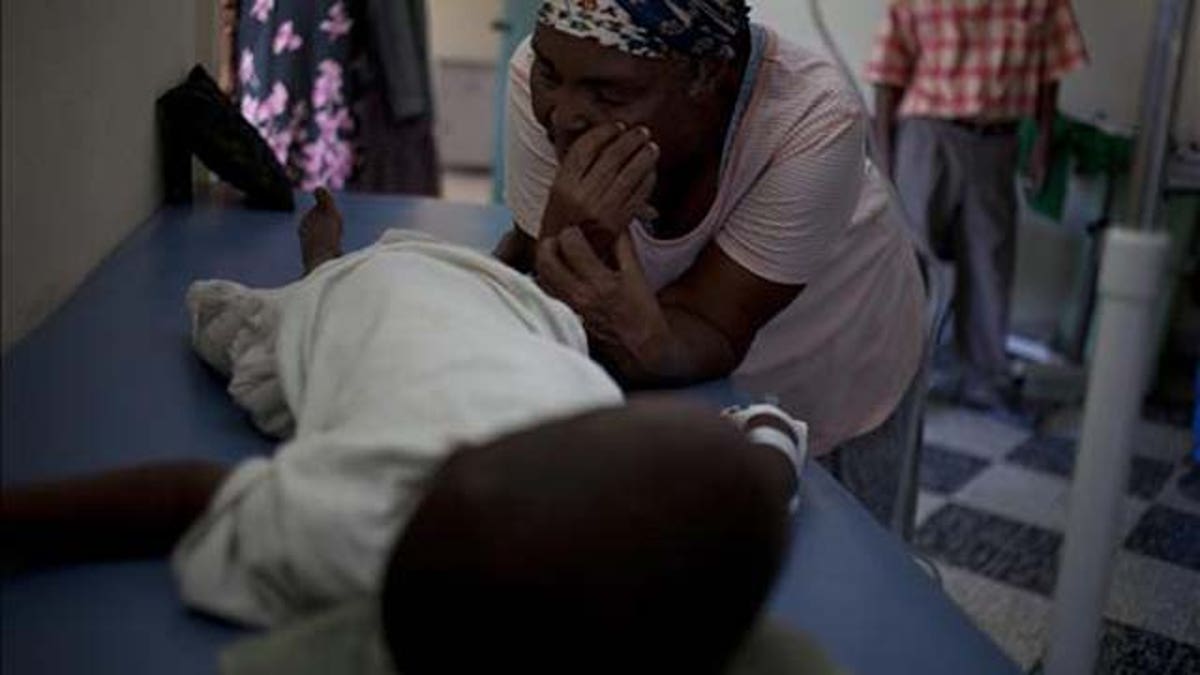
Rioting in Haiti over the fast-growing cholera epidemic escalated Tuesday as protesters started shooting at U.N. soldiers.
The protesters blame Nepalese peacekeepers for the country’s growing cholera outbreak, which health officials say has killed 1,034 people. The protests left at least two people dead. A demonstrator was shot dead by a U.N. peacekeeper during an exchange of gunfire in Quartier Morin, near Haiti's second-largest city of Cap-Haitien, the United Nations mission said. It said it was investigating the shooting but asserted the soldier acted in self-defense.
Haiti Senate President Kelly Bastien told Radio Vision 2000 that a second demonstrator was shot and killed in Cap-Haitien itself. He did not know who shot him.
The 12,000-member force reported that at least six U.N. personnel were wounded in protests at Hinche in the central plateau, while local Radio Metropole reported that at least 12 Haitians were injured in Cap-Haitien.
The protests apparently began in Cap-Haitien early Monday and within hours had paralyzed much of the northern port city. An APTN television cameraman trying to reach the area was repelled by protesters throwing rocks and bottles from a barricade.
As the day went on, other protests broke out in surrounding towns and the central plateau. Local reporters said a police station was burned in Cap-Haitien and rocks thrown at peacekeeping bases. A small protest was also reported in the northwestern city of Gonaives, but U.N. police said it ended peacefully.
The U.N.'s spokeswoman in Geneva, Corinne Momal-Vanian, described the suspicion that Nepalese troops were to blame for the outbreak as "misinformation." Suspicions turned to Nepalese base located on the Artibonite River system, where the outbreak started, because soldiers arrived there following outbreaks in their home country and about a week before Haiti's epidemic was discovered.
Following an Associated Press investigation, the U.N. acknowledged that there were sanitation problems at the base, but said its soldiers were not responsible for the outbreak. Transmitted by feces, the disease can be all but prevented if people have access to safe drinking water and regularly wash their hands.
Meanwhile, in the Dominican Republic, which shares the island of Hispañola with Haiti, health officials banned used clothing from being sold in outdoor markets along the shared border as a precautionary measure to stop the disease's spread.
Based on reporting by The Associated Press.
Follow us on twitter.com/foxnewslatino
Like us at facebook.com/foxnewslatino
